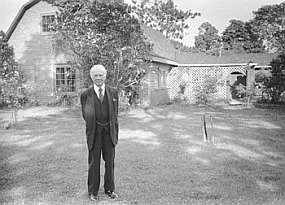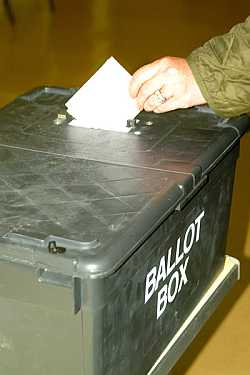Nothing baffles me more than the intersection of politics and conservative American Christianity.
The election of 2012 promises to pit more of the same old, same old against itself, as Republicrats and Democans battle to see who will preserve the status quo for the ruling powers that be. Into this fray comes the handwringing, conservative, evangelical Christians who will go on and on about “the soul of our nation” and “if my people will humble themselves and pray….”
I’m about as truly conservative as it gets, both in politics and theology, but anymore, I can’t identify with any of my supposed Christian brethren when it comes to governing the nation or running a church.
I don’t understand how supporting a pro-life GOP candidate makes one iota of difference in overturning the demonic Roe v. Wade. Pro-life politicians have had decades to work, even having insurmountable majorities at times, yet nothing has budged Roe even the slightest.
In addition, we keep electing politicians who campaign on platforms of reducing government, only to show their true big government colors once in office. They get in power, put out the nepotism shingle, and the next thing you know, a pack of Ivy League School frat brothers are running the country (club) again. Democrat or Republican? Who cares? It’s just a different set of frat rowdies subjecting the country to the same hazing.
Worse, we Christians are running our churches the same way. The same failed programs get repackaged year after year and voted on by church councils as the “new direction for our ministry”—only to wind up abandoned on the dustheap a year later, their ashes choking us, even as we ignore the coughing.
Something in the conservative Christian mindset has congealed around a set of unchanging parameters that has us locked into being neither all that conservative nor Christian. We’ve become unable to challenge the status quo and ask hard questions about why we keep failing to meet the goals we set for our nation or for our churches.
Honestly, I can’t think of a battle we are winning on a macro level, either for America or for Jesus. And if we want to be truly depressed, try finding a winning battle that is both for America and Jesus at the same time.
The problem as I see it is an inability to take every assumption we make as Americans and as Christians and put holy fire to it. When even our brightest minds are unable to ever ask the question “Why are we doing things this way?” then how is it that we can ever expect a different outcome? Unless we start challenging every practice we have forged within American politics and the American Church, we will be lost. The amount of bovine methane production from the sheer number of our sacred cows will keep reducing the amount of oxygen to our brains, and then what hope will we have?
Anyone familiar with computer software understands the concept of “skins.” The menu bar in your Web browser may look different from your neighbor’s, but it’s still Google Chrome or Mozilla Firefox underneath. You just chose different art to “skin” your personal copy.
I look at Rick Santorum, Mitt Romney, and Barack Obama and I see the same underlying person, albeit with a different skin over the top. The same goes for our churches.
The problem is what lies underneath the skin. And we are failing to address those problems, instead swapping in different skins with the hope that our experience will be different.
But as the old Southerner opined, “Ain’t no sense putting lipstick on a pig.”
I can’t sit idly by and not question what’s underneath the skin. I won’t put lipstick on a pig and tell myself she’s a beauty.
We Christians have got to stop supporting systems that are based on a foundation of repeated failure. We must question not only the silliness in modern politics but also the identical silliness in our church praxis.
This is not about assaulting the core truths of the Gospel or of our Constitution, but it’s a hope that we will get back to what is truly important, while questioning everything else.
Why do we do what we do in our church meetings on Sunday? Why are we supporting Church systems that perpetually fail to produce disciples? Why do we run our churches like businesses, with hierarchies that are not only not biblical but actually rob average people of their God-given birthright to serve the brethren and not be just a passive lump deigned to absorb another Sunday message that won’t stick beyond Sunday lunch?
Why do we continue to elect cold, calculating political animals who are only in it for themselves and their Ivy League frat brothers? Why do we prattle on about change while electing the same old type of yahoo?
Why?
 Is ANYONE asking that question?
Is ANYONE asking that question?
Folks, it’s time for the sheep to wake up and heed these words of Jesus:
“Behold, I am sending you out as sheep in the midst of wolves, so be wise as serpents and innocent as doves.”
—Matthew 10:16
We’ve been solely innocent doves for too long, and it has not served well either our nation or our churches.

 But again, today’s conservatives can’t spot the difference.
But again, today’s conservatives can’t spot the difference. This year, I have almost no idea what’s going on politically. I know one of the librarians at my local library is up for re-election to the school board. I know there’s some kind of anti-pornography state issue on the ballot. Beyond that, I’m not attuned to the scene.
This year, I have almost no idea what’s going on politically. I know one of the librarians at my local library is up for re-election to the school board. I know there’s some kind of anti-pornography state issue on the ballot. Beyond that, I’m not attuned to the scene.